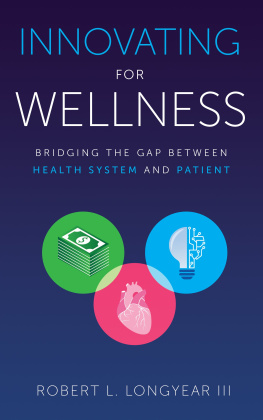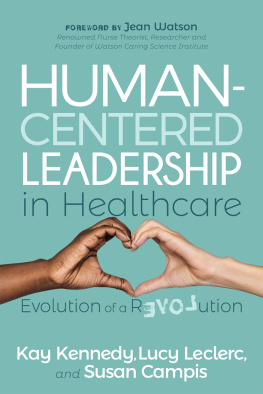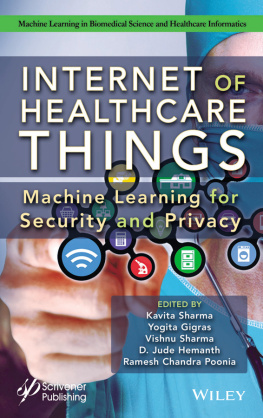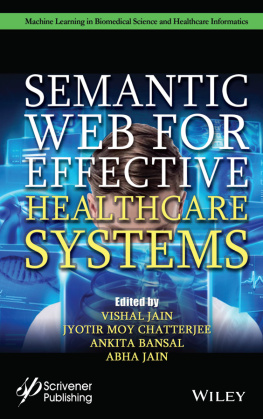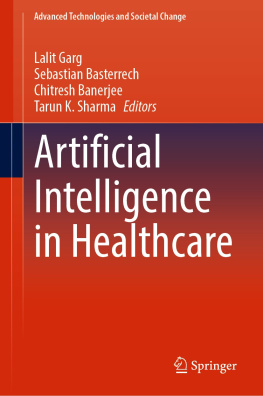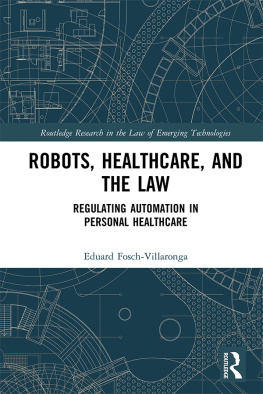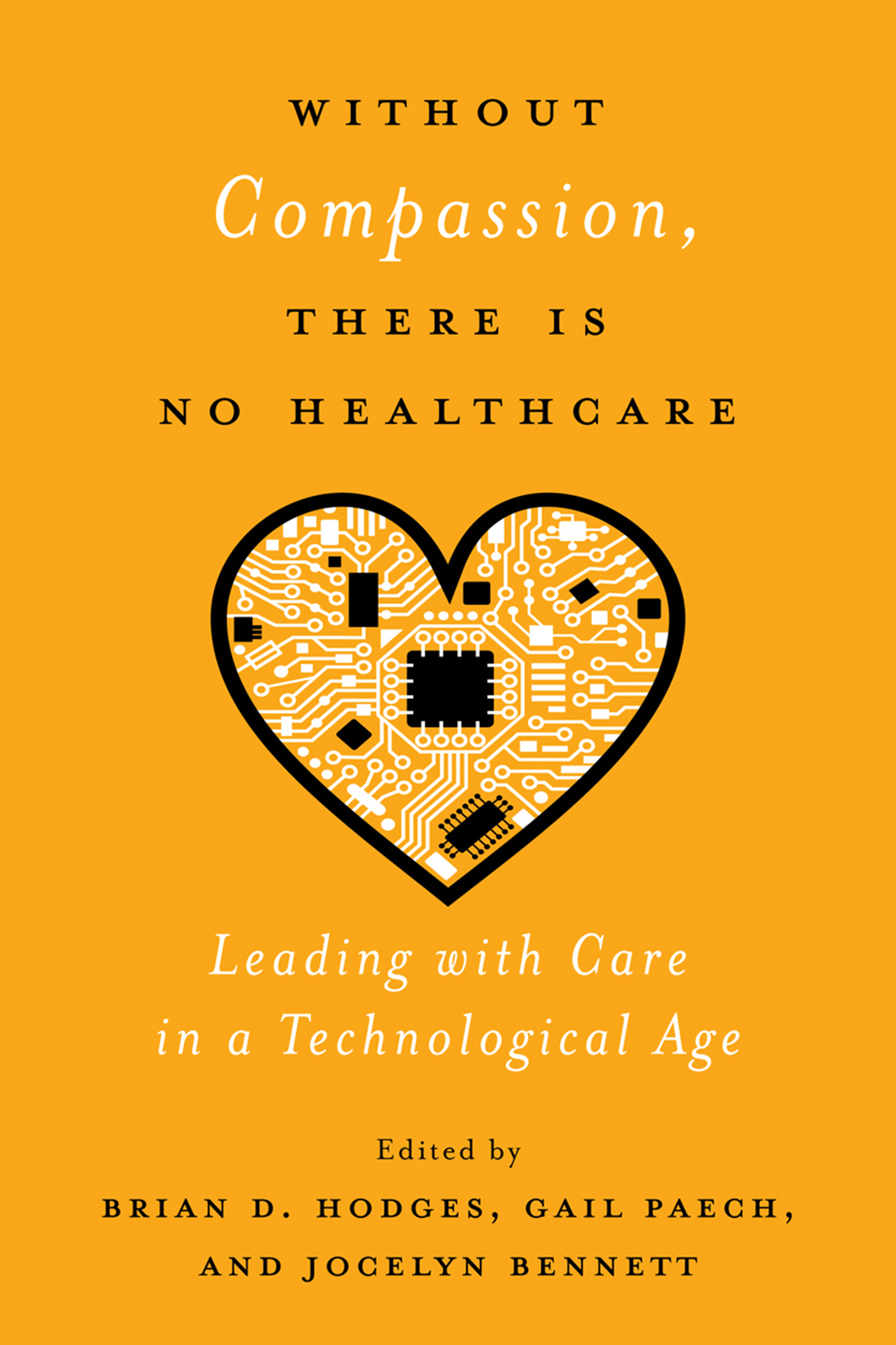WITHOUT COMPASSION,
THERE IS NO HEALTHCARE
Without Compassion,
There Is No Healthcare
Leading with Care
in a Technological Age
Edited by
BRIAN D. HODGES, GAIL PAECH,
AND JOCELYN BENNETT
McGill-Queens University Press
Montreal & Kingston London Chicago
McGill-Queens University Press 2020
ISBN 978-0-2280-0376-2 (cloth)
ISBN 978-0-2280-0377-9 (paper)
ISBN 978-0-2280-0461-5 (e PDF )
ISBN 978-0-2280-0462-2 (e PUB )
Legal deposit fourth quarter 2020
Bibliothque nationale du Qubec
Printed in Canada on acid-free paper that is 100% ancient forest free
(100% post-consumer recycled), processed chlorine free
This book has been published with the help of a grant from the Canadian Federation for the Humanities and Social Sciences, through the Awards to Scholarly Publications Program, using funds provided by the Social Sciences and Humanities Research Council of Canada. Funding was also received from Associated Medical Services.
We acknowledge the support of the Canada Council for the Arts.
Nous remercions le Conseil des arts du Canada de son soutien.
Library and Archives Canada Cataloguing in Publication
Title: Without compassion, there is no healthcare: compassionate care in a technological age / edited by Brian D. Hodges, Gail Paech, and Jocelyn Bennett.
Names: Hodges, Brian David, 1964 editor. | Paech, Gail, 1947 editor. | Bennett, Jocelyn, 1958 editor.
Description: Includes bibliographical references and index.
Identifiers: Canadiana (print) 20200279254 | Canadiana (ebook) 20200279424 | ISBN 9780228003779 (paper) | ISBN 9780228003762 (cloth) | ISBN 9780228004615 (e PDF ) | ISBN 9780228004622 (e PUB )
Subjects: LCSH : Medical technology. | LCSH : Medical care. | LCSH : Compassion.
Classification: LCC R 855.3 . W 58 2020 | DDC 610dc23
This book was typeset by Marquis Interscript.
The more distracted we become, and the more emphasis we place on speed
at the expense of depth, the less likely and able we are to care
Being attentive to the needs of others might not be the point of life, but it
is the work of life.
Jonathan Safran Foer, How Not to Be Alone,
New York Times , 8 June 2013
Contents
Tables and Figures
TABLES
1.1 Levels of the healthcare ecosystem 37
6.1 Examples of practices for cultivating compassionate leadership 168
7.1 Principles for compassionate healthcare organizations 175
FIGURES
0.1 The Doctor by Luke Fildes (1891) illustrates the medical gaze 19
1.1 Digital intersections with compassionate care 42
3.1 Compassion, equity, and technology triangle 81
6.1 Compassionate leadership model 160
PREFACE
A Call to Caring
Brian D. Hodges
As the year 2020 began, the world watched in horror as a virulent virus, now known as COVID -19, spread around the globe. It closed down the economy of almost every country in the world, sickened millions, and proved deadly for older adults and those with serious health conditions. Health professionals rallied, harnessing oxygen and ventilators in overcrowded, under-prepared intensive care units, medical wards, and long-term care facilities. Public health and home and community care prepared to support and manage large numbers of our population at home in self-isolation and quarantine. Healthcare providers also deployed unbelievable compassion for patients, families, and for each other.
In the midst of these heroic demonstrations of compassion, caring, and kindness, models of care shifted seemingly overnight. Relevant to the theme of this book is the incredibly rapid concurrent virtualization of care in the community, clinics, and hospitals of countries affected by the pandemic. In a matter of weeks, headlines on virtual care shifted from Canada Has Long Way to go on Virtual Care (Vogel 2020, E 227), to Your Next Visit with a Doctor May Not be Face to Face (Ogilvie 2020). In my own hospital, which in regular times has over a million ambulatory visits per year, 80 per cent of ambulatory care was shifted online in a matter of two weeks! Understanding both the effectiveness and the patient and family experience of this dizzying systems change will take months, but suffice it to say the digital transformation experienced an enormous jump forward. It is now more urgent than ever to understand what it means that huge swaths of healthcare can be conducted online, at a distance, and mediated by technology.
As this book comes into print, the crisis it not over, and it is likely that COVID -19 will return in further waves. For many healthcare workers it recalls the medical, economic, and psychological devastation unleashed by Severe Acute Respiratory Syndrome ( SAR S ) in 2003, a virus that infected a tiny fraction of the number already touched by COVID -19. The authors here address critical issues that can support learning from this pandemic in a way that we have not learned in the past.
COMPASSION IN HEALTHCARE
Beyond the implementation of virtual care, other technologies are also changing life significantly for those of us who work in or require healthcare. Hospitals have launched patient portals that give instant access to test results and appointments. In clinics, operating rooms, and community settings, computers that employ artificial intelligence ( AI ) are augmenting the work of human health professionals. It seems every day new technologies bring fantastical advances to care.
The technological transformation underway in healthcare is worthy of particularly focused attention, as unlike other industries (banking, commerce, and transportation) which are all concerned with human experience, healthcare is rooted in something deeper: the very purpose of healthcare work is anchored strongly by compassion by a commitment to attend to and alleviate the suffering of others. This book illuminates challenges and opportunities that are specific to the future of healthcare. Within an evolving technological landscape, how can healthcare remain grounded in, and driven by, its compassionate purpose?
While the editors and authors of this book hold diverse perspectives, we have worked in concert to develop two premises. First, human compassion must remain central to the means and ends of healthcare work. Second, technologies can and should be aligned with this goal, but that is only possible with vigilant attention to their specific capacities, effects, and potential harms. The ways that humans choose to design, acquire, and employ technologies will determine whether compassionate healthcare is fostered or undermined.
Yet, for some time, compassion has lost prominence as the governing tenet of healthcare work. Compassionate care is vulnerable when stacked against the constant imperative to be efficient, the distancing gaze of science, and the rapid, expansive logic of automation. When compassion is diminished, healthcare becomes ineffective or even harmful to those who receive treatment, as well as for those who provide it. Compassion must first be reaffirmed as a guiding principle at the core of future healthcare systems. It must then be brought to bear upon the technological advances that are fast unfolding. Each chapter in this collection serves one or both of these objectives.
Terms for governing values, such as compassion, tend to accrue many meanings. This is part of their power and potential as a uniting force, but it can also produce confusion and discourage precision. We must, therefore, be vigilant about what we mean by compassion. In preparing this book, we began with established definitions as baselines. Following the Oxford Handbook of Compassion Science , we mean empathy to be an emotional experience that is the same (or nearly the same) as what another person is feeling or expected to feel (Seppl, Simon-Thomas, et al. 2017, 63) and compassion to be sensitivity to the pain or suffering of another, coupled with a deep desire to alleviate that suffering (Seppl, Simon-Thomas, et al. 2017, 42) . Empathy is necessary but not sufficient for compassion; the latter requires an inclination to act. Contributing authors were encouraged to take these definitions as a point of departure. As scholars of language, however, many of us are aware that the meaning and power of words cannot be readily contained. Some authors have chosen to extend, examine, and challenge these definitions. In particular, each of the first three chapters offers a distinct approach to the concept of compassion .


